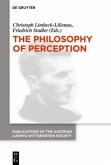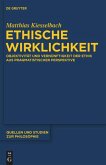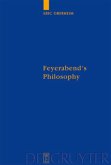The contributors in this volume situate Wittgenstein's philosophy within the context of Kant, Hegel, Fichte, and Schelling. They show how his philosophy both stands in the tradition of German idealism while breaking new ground. The topics of logic and language make this tension especially palpable and allow the authors to reveal new connections and offer critical perspectives.
"This is a stimulating collection of papers exploring the rich connections between Wittgenstein's thought and classical German philosophy, especially Hegel's philosophy. Focusing on the general themes of logic, language, and life, this volume can be recommended." - Michael Beaney, Humboldt University of Berlin, University of Aberdeen
"Although this topic is highly important, it has only recently attracted the attention it deserves. The contributors in this volume are leading experts in the field, and their articles shed novel light not just on fascinating strands in the history of ideas, but also on their continuing philosophical relevance, e.g. in Pittsburgh philosophy, critical theory and aesthetics." - Hans-Johann Glock, University of Zurich
"A seminal publication for anyone interested in the development of analytic philosophy, this book is essential reading for understanding the ongoing dialogue between Wittgenstein's innovations and traditional philosophical frameworks." - Jakub Mácha, Masaryk University in Brno
"Although this topic is highly important, it has only recently attracted the attention it deserves. The contributors in this volume are leading experts in the field, and their articles shed novel light not just on fascinating strands in the history of ideas, but also on their continuing philosophical relevance, e.g. in Pittsburgh philosophy, critical theory and aesthetics." - Hans-Johann Glock, University of Zurich
"A seminal publication for anyone interested in the development of analytic philosophy, this book is essential reading for understanding the ongoing dialogue between Wittgenstein's innovations and traditional philosophical frameworks." - Jakub Mácha, Masaryk University in Brno








